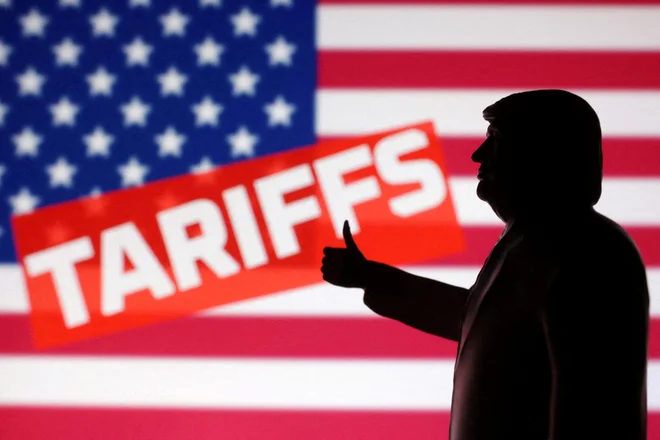The stock market is returning a blow

Participants in the capital market have experienced an extremely dynamic period in the first months of this year, and in the past month we crowned the year with a remarkable return of stock markets. The return of stock markets in Europe and the United States, where investors, despite the threats of the trade war, believe in the robustness of local economies, should be mentioned here. But the robustness of local economies is truly the only cause of re -growth of stock investments and can we explain the growth again?
Investors, on « Liberation Day », feared the implications of the trade war. Donald Trump He started a cold trade war in the first term, but it was much smaller in Magnituda. This time, the US president opposed the entire world. Negotiations are thus not only needed with representatives of Asian countries, but also centuries -old American allies, with Europe and the United Kingdom. Initially, expectations about negotiations were pessimistic, as investors did not anticipate rapid progress in the negotiations and preferred to focus on the consequences of the trade war. For a few weeks after the fateful day of liberation, we could notice a significant slowdown in international trade. China was most exposed, where shipments from local ports directed against the US stopped almost overnight. Economists were rushing to evaluate the consequences of such events, in particular they focused on the impact on economic growth and how smaller trading would initially affect employment in the supply chain and later the unemployed level.
After a 20 % jump from the April bottom, the stock markets became overestimated. Photo: Dado Ruvic/Reuters
Within a few days after the announcement of the liberation, we experienced a real bear market on the market. The US S&P 500 descended from February by more than 20 percent, and we have suffered European investors of US financial instruments as a result of the Euro-Dolar currency. If we add a currency deviation to the 20 % falling index, European investors have lost as much as 25 percent in the same period. Due to the increase of the purchase power of the euro, European investors have also been deprived of the rapid growth of stock indices, which have been repelled by just under 20 percent since April DNA.
Cathariza by agreement
The positive growth of stock indices was mainly influenced by the financial statements of the first quarter and the forecasts of business companies in 2025. The robustness of the business of companies indicates the robustness of the American consumer and, consequently, the US economy. The prophets of destruction and recession were soon exchanged in the ether by advocates of the bull’s trend. The capital markets were further ignored by the news of the UK and the USA agreement. The partners agreement is expected to be the first among many prepared by the US president. Thus, within a few days after the day of liberation, we moved from the overall breaking in the stock markets to the sentiment of re -greed. Capital markets have experienced catharsis, especially after US and Chinese representatives in Geneva negotiations reached an agreement. It contained a 90-day moratorium of trade war and significantly reduced customs levels in the US and China.
Despite the better sentiment, in the background, it still has a weakness in the capital markets. After a 20 % jump from the April bottom, the stock markets became overestimated. In the past, we have attributed an 18-time price to the US S&P 500 an average of a price and profit ratio, but today the valuation of the index is again close to the record value of the 22-time price between price and profit. Such a level was in the past attributed to time when it did not threaten investors any inconvenience. As a result, international investors seem to forget about the main starting point of the trade war, which we could learn in the negotiations between the United States and the United Kingdom.
It seems that in the eyes of the US administration, it is more important to repay domestic debt in negotiations than a « fair game » of international trade. Investors forget that the capital market is a zero -sum play where the expiry of capital for repayment of US debt will be known on the balance sheets of the rest of the countries. So how will we fill the gap? Businesses are already announcing new prices. As a result, the required returns in the bond markets are growing, which again presses on the US State Treasury, which must be borrowed at higher interest rates. According to Apollo Global Management, as many as 76 percent of US manufacturing companies will transfer higher prices to the consumer. As many as half of production companies will absorb costs. If such companies want to justify the current market value, they will have to start shrinking operations or strive for lower quality of products produced. So in this game with a zero sum, will the American economy’s debt gap end up paying me in the end?







